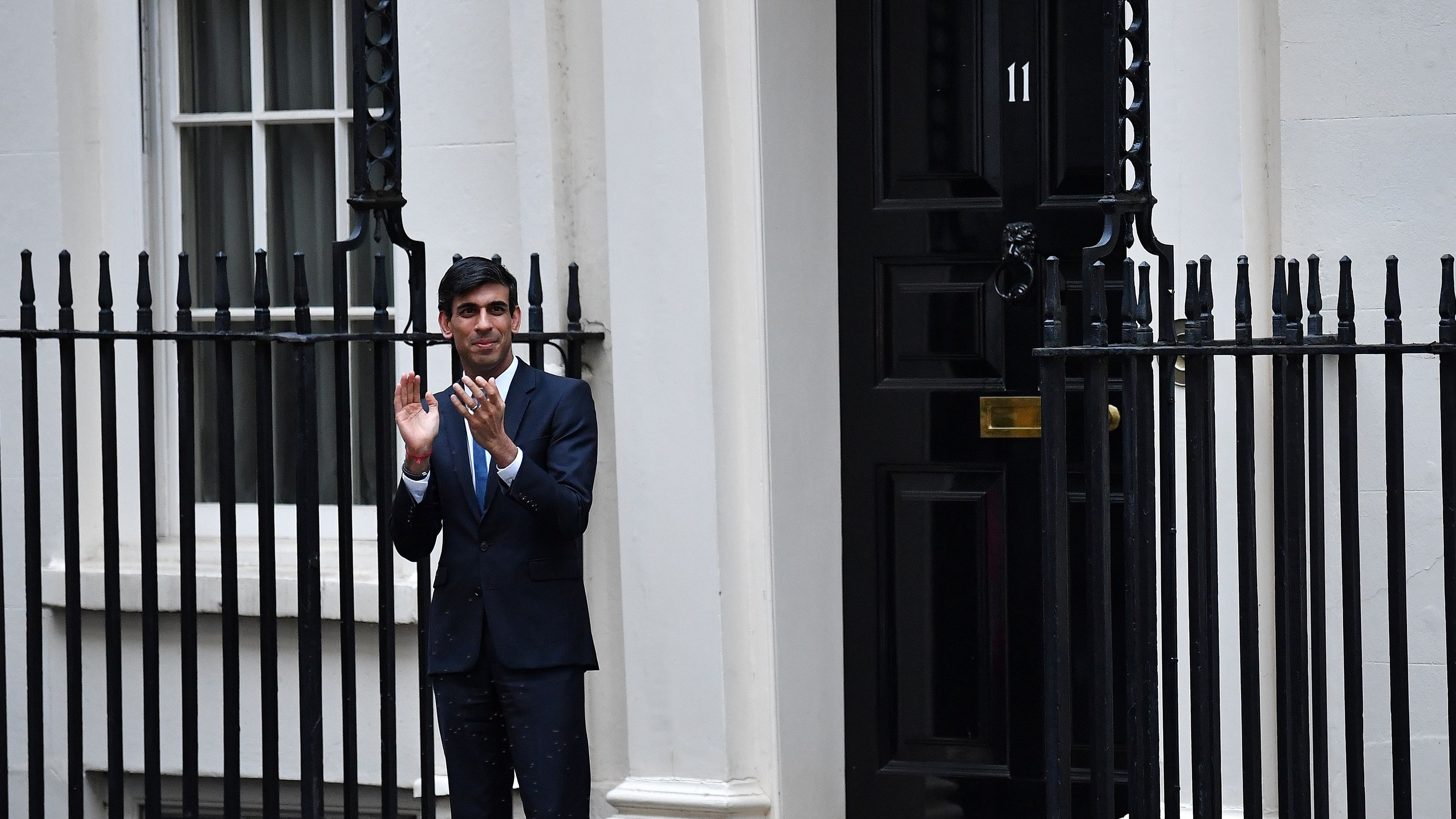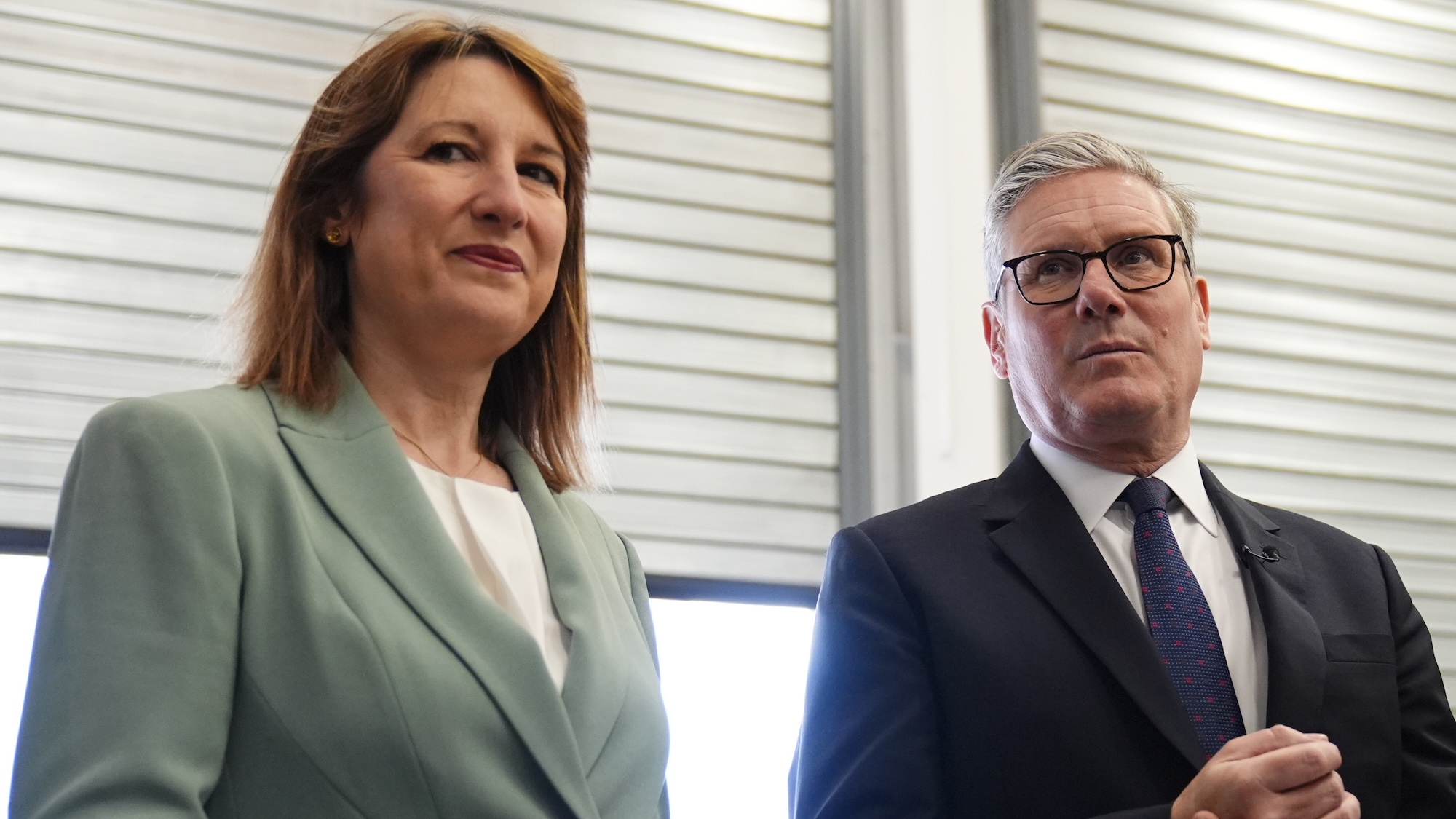How long can Britain afford the furloughing scheme?
Analysts say total cost of coronavirus job retention programme may hit £100bn by autumn

A free daily email with the biggest news stories of the day – and the best features from TheWeek.com
You are now subscribed
Your newsletter sign-up was successful
The government will continue to pay workers put on leave as a result of the coronavirus crisis until October, Chancellor Rishi Sunak has announced.
However, companies will be asked to contribute towards the cost of the Job Retention Scheme from August, Sunak added.
What is the scheme?
The Week
Escape your echo chamber. Get the facts behind the news, plus analysis from multiple perspectives.

Sign up for The Week's Free Newsletters
From our morning news briefing to a weekly Good News Newsletter, get the best of The Week delivered directly to your inbox.
From our morning news briefing to a weekly Good News Newsletter, get the best of The Week delivered directly to your inbox.
Under the job retention programme, the government will currently pay 80% of workers’ wages, up to £2,500 a month, if they are put on leave, or furloughed.
To access JRS payments, employers must designate specific employees as “furloughed workers” and notify them of their status. The employer then has to apply through an online HMRC portal.
How many people are on the scheme?
A total of around 7.5 million employees - 27% of the UK workforce - are now being paid through the furlough scheme.
A free daily email with the biggest news stories of the day – and the best features from TheWeek.com
And when public sector workers, such as doctors and civil servants, and people on existing benefits are added to the equation, more than half of Britain’s adult population is being bankrolled by the state, according to The Telegraph.
The government is currently paying about £14bn a month to furloughed workers, and the director of the Institute of Fiscal Studies (IFS) economic think tank, Paul Johnson, predicts that the total cost of the scheme may reach nearly £100bn by October.
How long will it last?
The scheme was announced in late March and came into effect on 20 April.
In a statement to the Commons this week explaining his decision to extend the programme by another four months, Sunak said that he “won’t give up on the people who rely on it”.
He continued: “Nobody who is on the furlough scheme wants to be on this scheme. People up and down this country believe in the dignity of their work, going to work, providing for their families, it’s not their fault their business has been asked to close or asked to stay at home.”
However, changes are being implemented to offer “greater flexibility to support the transition back to work”, the BBC reports.
From August, furloughed workers will be able to return to work part-time, with employers asked to pay towards their salaries. A similar model is already being followed in Germany, “reducing the cost” to the state, says The Guardian.
But UK government sources have told the BBC that the Treasury stills expects to be paying more than half the costs of furloughed workers wages between August and October.
The Telegraph reports that Downing Street is considering cutting the Treasury’s contribution to 60% of workers’ pay, with employers expected to pay the remaining 20%.
How affordable is it?
Sunak has been under pressure from some Conservative backbenchers to do away with the scheme, or reduce the share paid by the government.
Another month under the current arrangements will increase the bill from £49bn to £60bn, reports The Times. And even if the share of wages paid by the state is gradually reduced, IFS boss Johnson predicts that a further £20bn may be added to the government’s bill in the final three months of the scheme.
However, the total cost of removing the scheme or making it less attractive to the 935,000 employers currently furloughing workers could be even even greater, if such workers instead lose their jobs for good.
Robert Chote, director of the Office for Budget Responsibility, said: “The immediate cost of the government’s actions may be high, but we can be confident that the cost of inaction would ultimately have been much higher.”
–––––––––––––––––––––––––––––––For a round-up of the most important stories from around the world - and a concise, refreshing and balanced take on the week’s news agenda - try The Week magazine. Start your trial subscription today –––––––––––––––––––––––––––––––
How is the government paying for the scheme?
The Treasury is reportedly considering making large-scale tax rises central to its payment plan, with pensioners, workers and homeowners all potentially chipping in.
“Rises to income tax, VAT, national insurance and corporation tax are all under discussion,” The Telegraph reports.
A public sector pay freeze is also being considered, according to the newspaper, which says officials calculate that a two-year freeze on public sector pay could generate savings of about £6.5bn in 2023-24.
However, the move would be likely to face widespread opposition, with many arguing that public health workers - such as those manning the NHS front line - are those most deserving of a pay rise.
-
 The environmental cost of GLP-1s
The environmental cost of GLP-1sThe explainer Producing the drugs is a dirty process
-
 Greenland’s capital becomes ground zero for the country’s diplomatic straits
Greenland’s capital becomes ground zero for the country’s diplomatic straitsIN THE SPOTLIGHT A flurry of new consular activity in Nuuk shows how important Greenland has become to Europeans’ anxiety about American imperialism
-
 ‘This is something that happens all too often’
‘This is something that happens all too often’Instant Opinion Opinion, comment and editorials of the day
-
 How corrupt is the UK?
How corrupt is the UK?The Explainer Decline in standards ‘risks becoming a defining feature of our political culture’ as Britain falls to lowest ever score on global index
-
 The high street: Britain’s next political battleground?
The high street: Britain’s next political battleground?In the Spotlight Mass closure of shops and influx of organised crime are fuelling voter anger, and offer an opening for Reform UK
-
 Is a Reform-Tory pact becoming more likely?
Is a Reform-Tory pact becoming more likely?Today’s Big Question Nigel Farage’s party is ahead in the polls but still falls well short of a Commons majority, while Conservatives are still losing MPs to Reform
-
 Taking the low road: why the SNP is still standing strong
Taking the low road: why the SNP is still standing strongTalking Point Party is on track for a fifth consecutive victory in May’s Holyrood election, despite controversies and plummeting support
-
 What difference will the 'historic' UK-Germany treaty make?
What difference will the 'historic' UK-Germany treaty make?Today's Big Question Europe's two biggest economies sign first treaty since WWII, underscoring 'triangle alliance' with France amid growing Russian threat and US distance
-
 How will Labour pay for welfare U-turn?
How will Labour pay for welfare U-turn?Today's Big Question A dramatic concession to Labour rebels has left the government facing more fiscal dilemmas
-
 Is the G7 still relevant?
Is the G7 still relevant?Talking Point Donald Trump's early departure cast a shadow over this week's meeting of the world's major democracies
-
 Five takeaways from Rachel Reeves' Spending Review
Five takeaways from Rachel Reeves' Spending ReviewThe Explainer The winners and losers as the government sets its budgets for the next four years